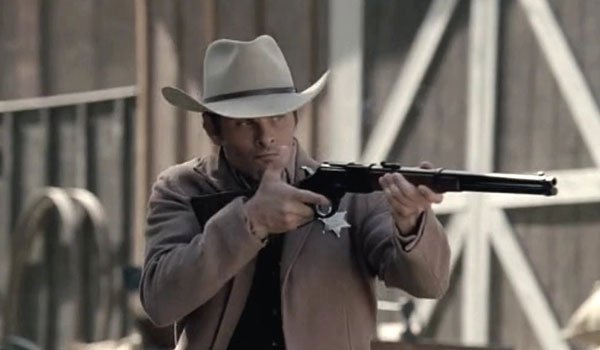Westworld Explained Why The Hosts Were Kept In The Same Narrative Loops

This story contains spoilers. If you're not caught up, save the article and come back.
Prior to the mutiny or whatever we're calling it at the end of Season 1, most of Westworld's story arcs were built on repetition. We got to watch the hosts live the same lives and perform the same actions over and over again with slight variations. In Season 2, we even found out there are more parks that feature storylines and personality types with striking similarities, even their music is just a variation on the same melody. At first, we were made to believe this was just laziness on the part of the programmers, but apparently the truth is far more interesting.
During a meeting with Ford, Bernard finally discovered one of the deeper secrets at the heart of the park, and by extension, the audience learned the same truth. The main goal was never to test the hosts and see how their personalities, functions and movements would hold up when interacting with real human beings. Nor was the goal to constantly refresh the storylines in order to make it as interesting as possible for returning guests. The goal was always to track and monitor the choices each human being would make when confronted with almost identical hosts and almost identical situations. That's why some of the loops operated for a really long time. The hosts were the control group, and if anything about the control group changed, the whole experiment would need to be changed. So, it was Teddy and the train, Maeve and her brothel and all the rest on repeat.
Now, the exact purposes behind these experiments are, at least to me, a little unclear. Yes, much of Season 2 has discussed using behavioral analysis to create hosts based on real human beings that can live forever. I'm sure there's an element of that involved. That seems to be what Westworld wants us to believe at this point, but there has to be deeper secrets at play here too. Is there an element of real world blackmail going on? Are people being taped? Is the information being sold to marketing companies? Or governments? Is the eventual goal to be able to abduct real people and replace them with hosts? I have no idea.
Like Lost and so many others that have come before, Westworld is a show about reveals. It's a show about withholding information and eventually supplying answers. It all works as long as the answers make logical sense. This one does. It explains so many things we've seen before, and while it might not help predict the future given all the hosts are off the rails now, it still feels deeply satisfying as a viewer to at least get rid of another lingering question. Here's to hoping we get even more payoffs throughout the rest of Season 2 and into Season 3.
Westworld airs on HBO on Sunday nights at 9PM EST.
Your Daily Blend of Entertainment News
Mack Rawden is the Editor-In-Chief of CinemaBlend. He first started working at the publication as a writer back in 2007 and has held various jobs at the site in the time since including Managing Editor, Pop Culture Editor and Staff Writer. He now splits his time between working on CinemaBlend’s user experience, helping to plan the site’s editorial direction and writing passionate articles about niche entertainment topics he’s into. He graduated from Indiana University with a degree in English (go Hoosiers!) and has been interviewed and quoted in a variety of publications including Digiday. Enthusiastic about Clue, case-of-the-week mysteries, a great wrestling promo and cookies at Disney World. Less enthusiastic about the pricing structure of cable, loud noises and Tuesdays.
